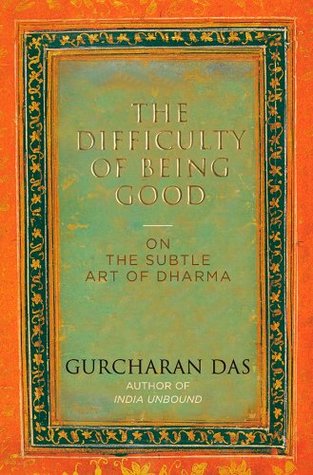More on this book
Community
Kindle Notes & Highlights
Read between
December 19, 2022 - February 12, 2023
you believe in God, Pascal had said, and He turns out to exist, then you have obviously made a good decision; however, if He does not exist, and you still believe in Him, you haven’t lost anything; but if you don’t believe in Him and he does exist, then you are in serious trouble.
Its own position veers towards the pragmatic evolutionary principle of reciprocal altruism: adopt a friendly face to the world but do not allow yourself to be exploited.
Plato thought it was impossible for rational beings to do wrong knowingly.25 But Aristotle disagreed, and he felt that Plato’s view contradicted the observed facts about ordinary human beings. He believed that a person may have the knowledge but may not use it.26 Indian thinkers seem to have shared Aristotle’s practical view. They believed that ‘people do, in fact, act against their moral convictions and this is an unhappy fact about ourselves’.27
‘It is the father who fails his son, and not the other way around.’
the Greeks institutionalized how to deal with envy through ostracism, Indians coped with it by renouncing it. No one would be envious of worldly success if you renounce it, and hope for compensation in another world. Even before the Buddha, the ‘Renouncer’ had become a perennial hero in India.
The Chinese, on the other hand, cope with envy by appearing to be excessively and hypocritically modest and seek to disparage their achievements. ‘O sir, I am your mean and humble servant who just happened to hit upon this idea,’ is not an uncommon refrain. If one sets too high a value on one’s abilities, it makes one commit the social offence of regarding oneself as better than others. Thus, the well-known Chinese fear of ‘losing face’ is a ritualized attitude, in part, to avoid envy.42
Envy is thus a leveller, and it levels downwards. Instead of motivating one to better performance, as my father thought it could, envy prefers to see the other person fall.
If greed is the sin of capitalism, envy is the vice of socialism
Envy is felt more strongly between near equals than those widely separated in fortune. It does not make sense to envy the Queen of England.
‘If envy were a fever the whole world would be ill’.
The Mahabharata does not think envy is a sin. It is just ‘poor mental hygiene’.
‘satisfaction of the mind is the only authority in cases of conflicting alternatives’.
principle of reciprocal altruism: adopt a friendly face to the world but do not allow yourself to be exploited.
The truth is that one’s ego is a ‘leaky balloon’ that needs constantly to be refilled through the praise and attention of others.25


